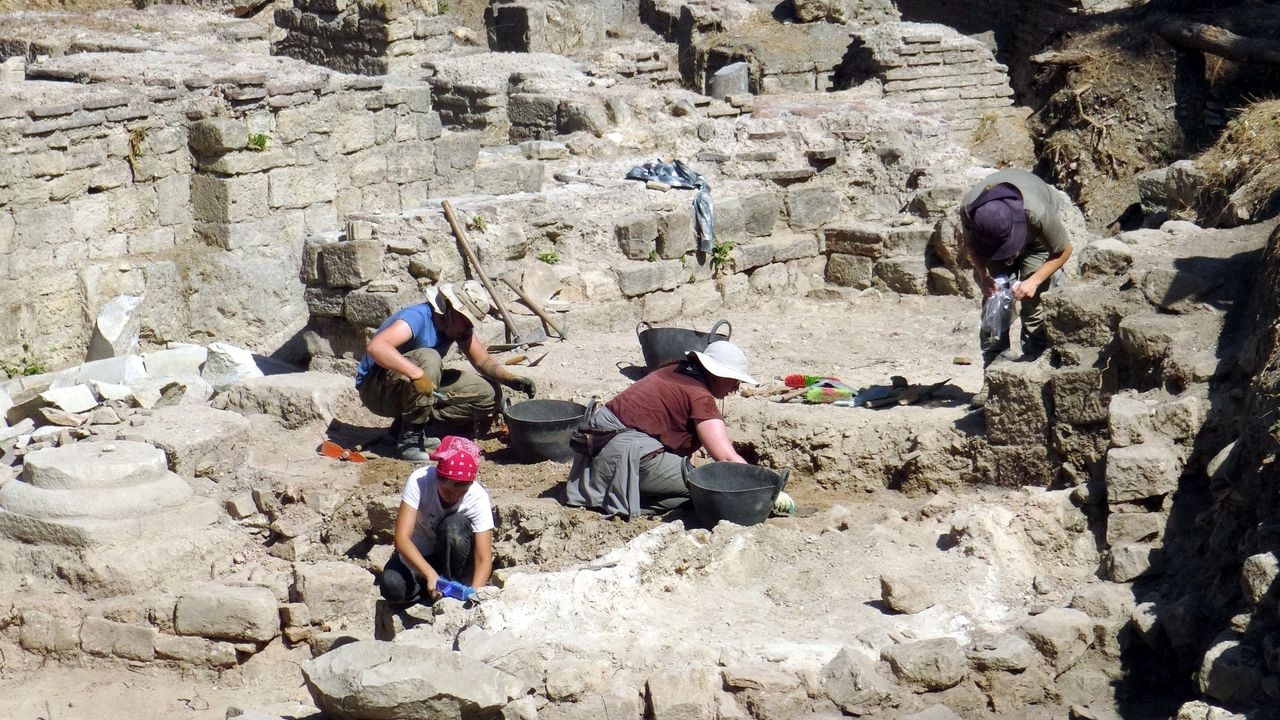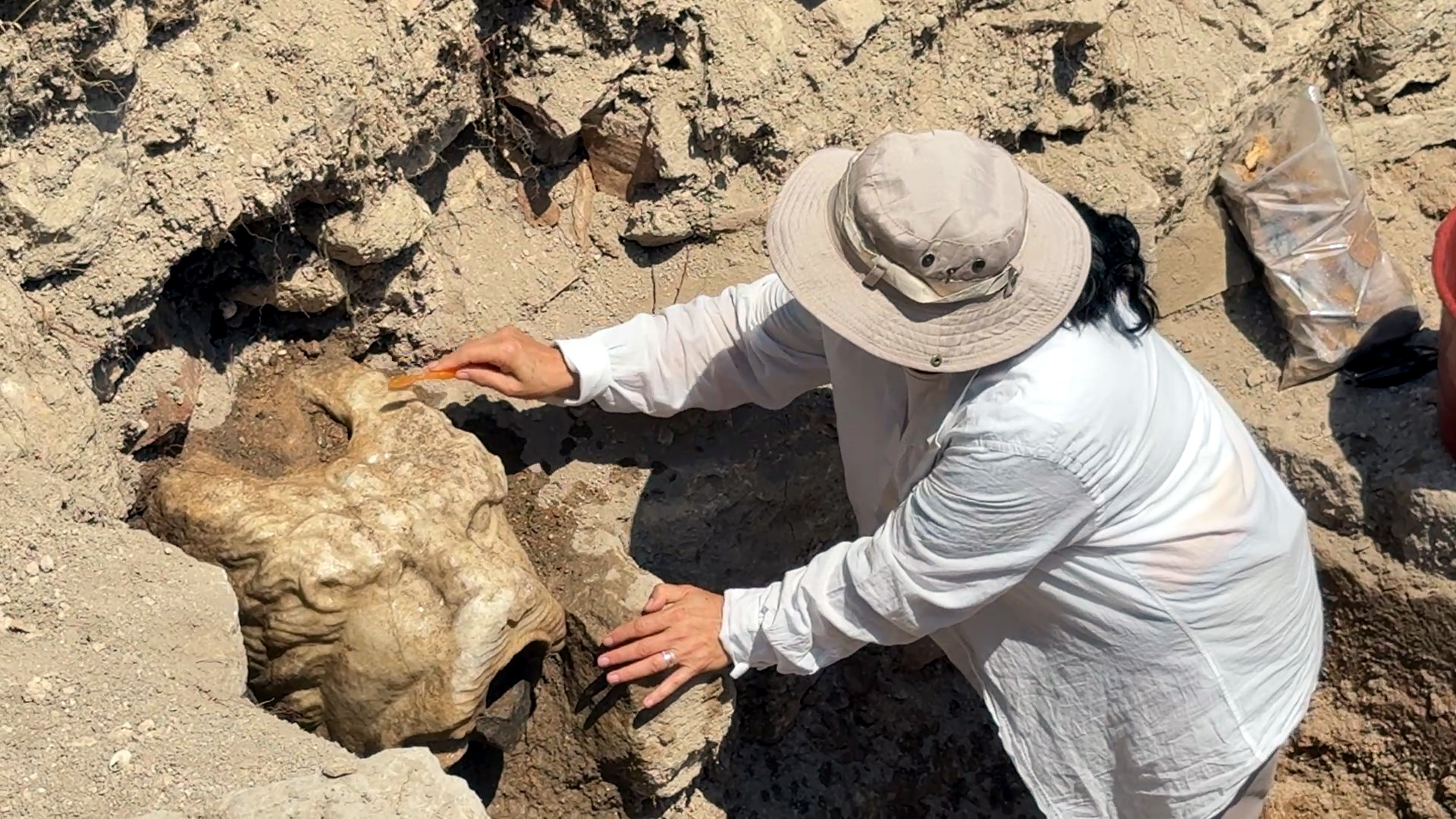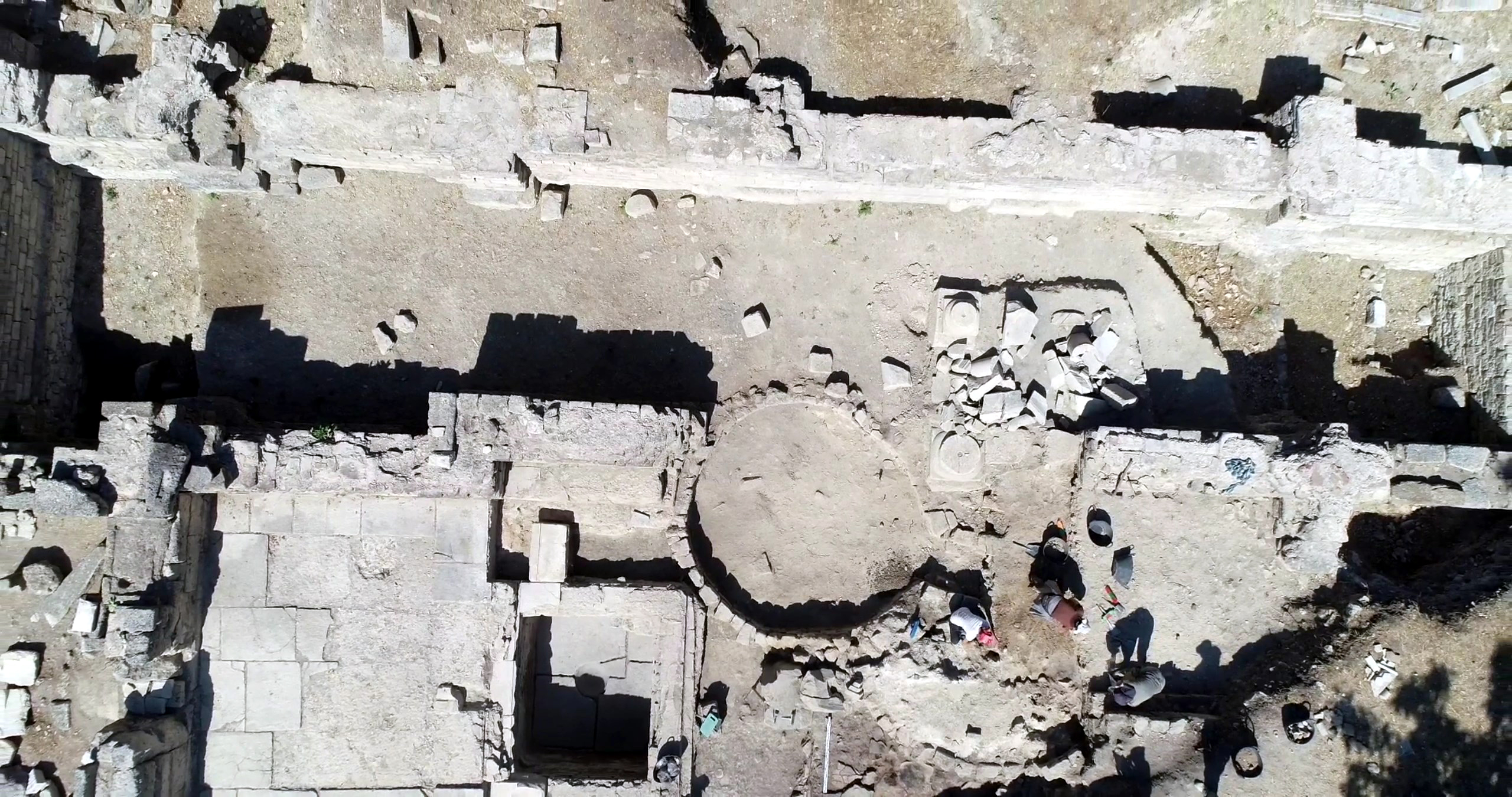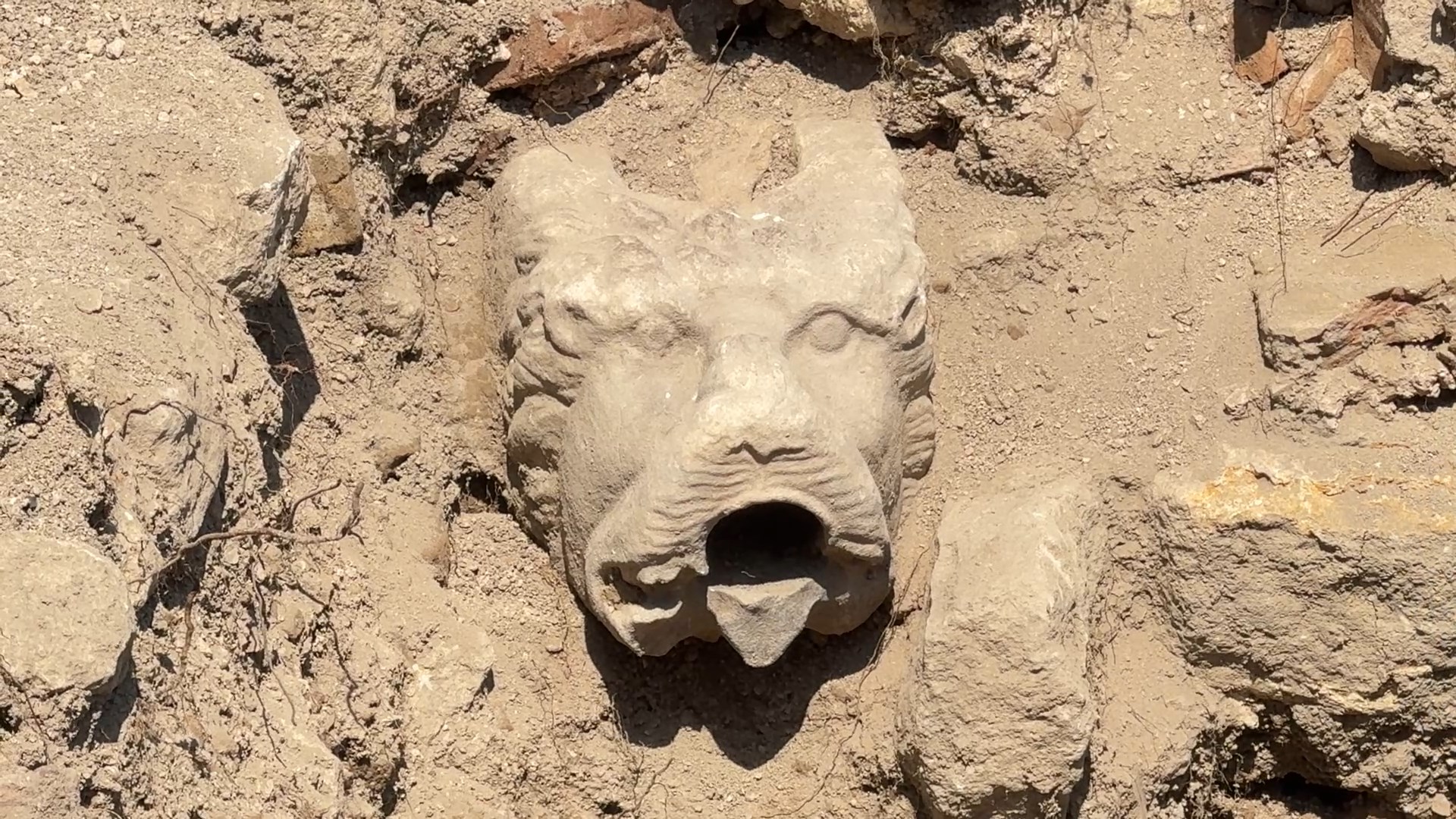Workshops were unearthed during the excavations at the Ancient City of Bathonea

Prof. Dr. Şengül Aydıngün, of the Department of Archaeology in Kocaeli University's Faculty of Arts and Sciences, said, "We've been encountering interesting finds for the past two years. We came across a large olive oil and wine processing complex. Last year, we found a site with a pool. This year, right next to it, we came across a smaller, much more elegant lion head, decorated with a mouthful of liquids flowing from it, emptying into a fermenting pool. This has us very excited."
Excavations at the ancient port city of Bathonea, which began in 2009 on the shores of Lake Küçükçekmece as part of the "Heritage to the Future Project" by the Ministry of Culture and Tourism and Kocaeli University, are continuing. This year's excavations, which also appear on the "Top Ten List of the World's Most Important Archaeological Discoveries," uncovered a lion-head-patterned stone, which served as a transfer point for the fermentation pool from key areas of olive oil and wine production dating back to the Late Antiquity.

Professor Dr. Şengül Aydıngün, Head of the Bathonea Ancient City Excavations, said, "We know that wine, produced 8,000 years ago, later spread to the Mediterranean via Anatolia and Mesopotamia, and that much of its production and production knowledge was disseminated in the Aegean and Egyptian regions. In later periods, wine was a crucial beverage for civilizations in Anatolia, Thrace, and the Aegean region. It was considered the drink of gods, kings, and even the elite, but later became available to the public. Wine, a truly cultural and social beverage, has been a vital part of human life for thousands of years. In ancient Greece and Rome, wine was also integral to social life. While it was a religiously significant beverage, it was also used as a medicinal ingredient in treatments. For the past two years, we have been uncovering interesting finds at the ancient port city of Bathonea, on the shores of Lake Küçükçekmece in Istanbul's Avcılar district, where we have been conducting research. We have discovered a large olive oil and wine workshop complex. Last year, we discovered a portion of the workshop. Of course, certain criteria are needed to make these statements."

Prof. Dr. Aydıngün stated that for an area to qualify as a production workshop, it must meet certain criteria. After the olive or grape pressing materials are brought in and laid out, they must be squeezed and pressed on a level platform, Prof. Dr. Şengül Aydıngün explains, "We need a place to collect the olives or grapes to be pressed later, so we need either tanks or pools. Last year, we found a space with a pool. This year, right next to it, we found a smaller, much more elegant pouring basin decorated with a lion's head, another flat platform, and a space where the liquid flowing from the lion's mouth is poured into a pool—in fact, a fermentation basin. This really excited us. On one hand, we see artistic craftsmanship. On the other, we see a constantly expanding workshop. With pressing platforms, pools, and storage units, the liquid accumulated in that pool needs to be distributed. How is this distribution done? We found many amphorae in the same place as the amphorae you see here (a type of two-handled Greek pottery typical of ancient times). These are also being restored by our colleagues. Some of the amphorae have their place of manufacture and the year of manufacture written on them. These amphorae, many glass goblets, are clearly made there. We even saw animal bones thrown into the pool. "It was obviously used in rituals. We are facing a very special place. One of the surprises of Bathonea this year is that the olive oil or winery is growing," he said.

DHA
Reporter: News Center
İstanbul Gazetesi





